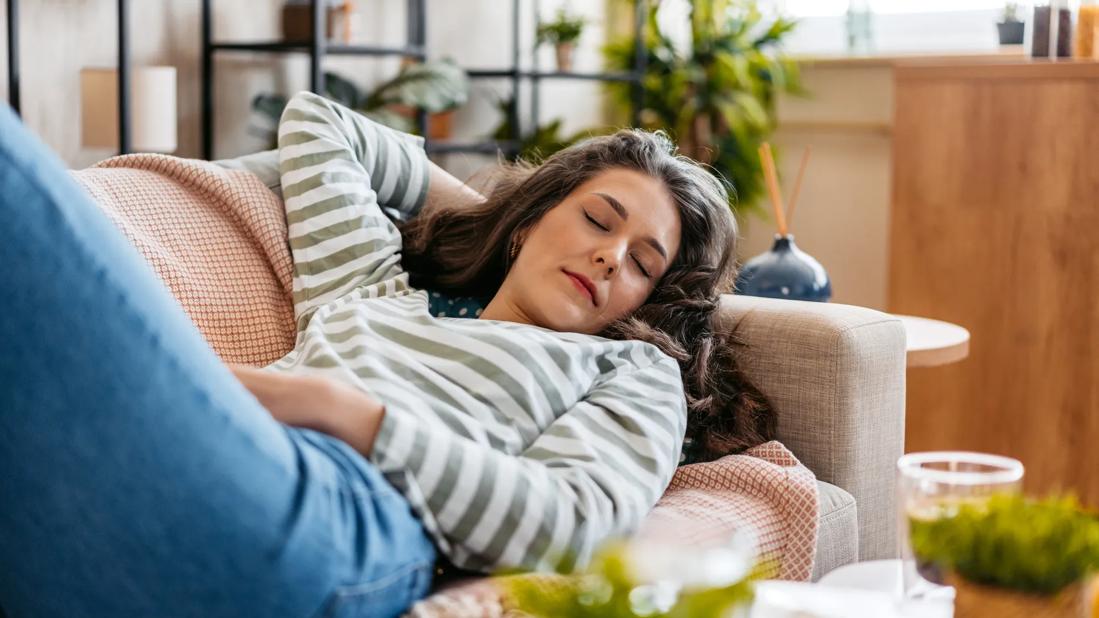Napping can boost focus, memory and mood — if you time it right

It’s been one of those days, and you’re struggling to keep your eyes focused. You could turn to a venti latte to put some spring in your step. But is there a better way?
Advertisement
Cleveland Clinic is a non-profit academic medical center. Advertising on our site helps support our mission. We do not endorse non-Cleveland Clinic products or services. Policy
A good nap might be just what the sandman ordered.
But there are some nuances to napping — and getting your daytime snooze just right might be more complex than you realize.
Psychologist and behavioral sleep disorder specialist Michelle Drerup, PsyD, DBSM, explains how to nap the right way to reap the benefits.
Done right, naps can be good for you in more ways than one. The key is knowing when and how to do it.
“Napping can help you feel a little more energetic, alert and relaxed,” Dr. Drerup advocates. “The trick is to nap long enough to feel refreshed, but not so long that you’ll move into deeper stages of sleep or take away your sleep drive for the night.”
Naps have a lot going for them.
If you’ve ever been around toddlers, you know the power of a good nap. And if you live with a sleep disorder, your healthcare provider may have recommended napping as part of your treatment.
But adults and healthy sleepers can benefit from some daytime ZZZs, too.
Some potential benefits to napping include:
Advertisement
The benefits of napping can be even more pronounced for some people.
“As we get older, our sleep becomes lighter, and we wake up more at night,” Dr. Drerup points out. “For many older adults, napping can help them function better.”
Before you crawl under the covers or kick back in your favorite recliner for an afternoon snooze, let’s set some ground rules.
Remember, too, that naps aren’t a replacement for a good night’s sleep. Most adults need between seven and nine hours of sleep each night.
Getting your nighttime slumber helps your body from head to toe. It keeps your energy up and boosts your immune system. It can even lower your risk of heart disease, obesity and more.
In short, if you’re relying on a siesta to make up for lost time, you’re not doing yourself any favors.
While naps can be helpful, they aren’t always the answer — and sometimes, they can make things worse.
Long naps can cause grogginess that makes it tough to get going again. They can also keep you from sleeping well that night — a domino effect that can impact your ability to face the next day.
What’s more, needing to nap isn’t always a good thing. If you can’t make it through a day without climbing into bed, it could be a sign of a problem.
“Relying on long, frequent naps might signal an underlying sleep disorder or another medical issue,” Dr. Drerup notes. “Mention it to your doctor to rule out any problems.”
In short, napping can have its upsides. But nap early and keep it short. Sleep tight!
Advertisement
Learn more about our editorial process.
Advertisement

To avoid sleep deprivation and shift work sleep disorder, try adopting habits that minimize light exposure and prioritize daytime sleep

Sleep disorders, mental health conditions and other health concerns can all affect the quality of your sleep

Most people fall asleep within 10 to 20 minutes, but if your experience is different, adjusting your sleep schedule may help

Stick to a consistent schedule, be mindful of screen time and work on reducing your stress levels before bed
These devices can help shed light on what’s happening with your body during rest

Keep a dream journal, set your intentions before bed and make sure you’re getting a full night of high-quality sleep

Controlling your dreams may help you tap into your creativity and even reduce anxiety

A 15- to 20-minute power nap is best to boost alertness — beware napping longer than an hour

The tropical fruit is a good source of antioxidants and vitamin C

Most people fall asleep within 10 to 20 minutes, but if your experience is different, adjusting your sleep schedule may help

Exploring your hidden side can lead to better understanding of what makes you tick